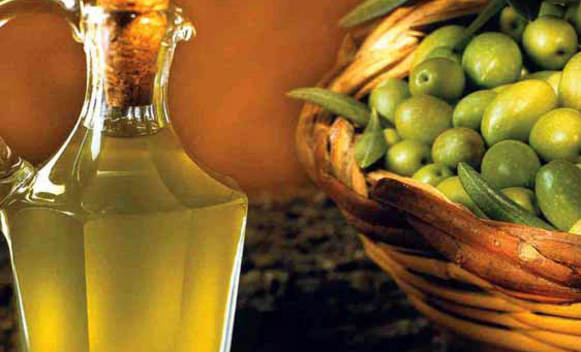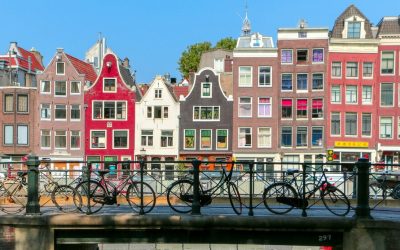 In principio c’erano i formaggi e i salumi, poi la longa manus della contraffazione alimentare ha allungato i suoi tentacoli su altri prodotti dell’eccellenza made in Tuscany, dall’olio fino al vino, dal latte alla pasta (e il pomodoro per condirla) fino alle verdure. Secondo un’indagine di Coldiretti, quasi la metà dei nostri prodotti da tavola, anche se sull’etichetta “batte” ufficialmente bandiera tricolore, proviene in realtà dall’estero oppure viene lavorata con materie prime provenienti da oltre confine.
In principio c’erano i formaggi e i salumi, poi la longa manus della contraffazione alimentare ha allungato i suoi tentacoli su altri prodotti dell’eccellenza made in Tuscany, dall’olio fino al vino, dal latte alla pasta (e il pomodoro per condirla) fino alle verdure. Secondo un’indagine di Coldiretti, quasi la metà dei nostri prodotti da tavola, anche se sull’etichetta “batte” ufficialmente bandiera tricolore, proviene in realtà dall’estero oppure viene lavorata con materie prime provenienti da oltre confine.
In questo modo, il nostro Paese – e soprattutto la Toscana, che vanta un alto numero di Dop (Denominazioni di origine protetta) e Igp (Indicazione geografica protetta) – inonda i mercati mondiali di prodotti “taroccati”. Un giro d’affari da svariati miliardi, che taglia le gambe alle imprese nostrane che scelgono di operare nel rispetto delle regole.
Tra i prodotti più taroccati, in Toscana spiccano i casi del Brunello di Montalcino, del lardo di Colonnata o dell’olio spacciato per extra-vergine.
Ecco perchè consorzi e associazioni di categoria hanno pensato di passare al contrattacco, mettendo su autentiche squadre di 007 anti-tarocchi. E’ il caso di Coldiretti o dei diversi consorzi di tutela dei prodotti, che hanno affidato questo compito di verifica a analisi agli “agenti vigilatori”, figure professionali che operano in stretto contatto con le forze dell’ordine: basti pensare che la qualifica di agenti di pubblica sicurezza viene rilasciato dalla locale prefettura.
In genere si tratta di laureati in Scienze agrarie o agronomi, con particolari competenze (in primis il potere sanzionatorio) e in grado di verificare se ciò che viene presentato come “made in Tuscany” lo è davvero.
Una di questi 007 è Fiammetta Nizzi Grifi, che lavora per il consorzio dell’olio extra-vergine d’oliva Chianti Classico: “Mi occupo di controlli su prodotti confezionati – racconta – e intervengo direttamente alla vendita, sugli scaffali, per verificare la rispondenza tra la qualità effettiva di un olio e il contenuto dell’etichetta. Acquisto le bottiglie come un normale consumatore ed eseguo una serie di verifiche sulla tracciabilità, attraverso le informazioni presenti nella fascetta numerata presente sulle etichette per capire se il contenuto della bottiglia corrisponde a quanto effettivamente riportato in etichetta. Un altro aspetto del mio lavoro – aggiunge Nizzi Grifi, che opera sia in Italia che all’estero – consiste nell’andare a rintracciare sul mercato prodotti che richiamano alla mente una determinata denominazione senza che le materie prime siano state coltivate dai soci del consorzio, oppure olio che non sia stato imbottigliato nei luoghi appositi. Si tratta di prodotti che agli occhi del consumatore distratto possono facilmente essere confusi per altri sottoposti invece a tutela”. In genere, sui controlli effettuati – specie nei luoghi nevralgici dell’import alimentare, come frontiere o porti – si registra circa un 10% di prodotti che mostra lacune su almeno uno degli aspetti evidenziati.
E se qualche tempo fa al Brennero e al Frejus sono stati scoperte quasi 15mila cosce di maiale provenienti da Olanda, Danimarca e Germania e destinate a diventare prosciutti italiani, proprio il consorzio del prosciutto toscano Dop – il primo a dotarsi di un agente vigilatore – è attivo con un proprio 007, Walter Giorgi, per garantire il massimo della tutela. “Possiamo agire in fase di commercializzazione – conferma Giorgi – per verificare ciò che avviene prima della vendita: controlliamo il cartellino, la marchiatura a fuoco e tutto ciò che un prosciutto deve avere per essere in regola. Compriamo anche prodotti similari da un punto di vista del nome, e quando riscontriamo irregolarità emettiamo verbali e multe che poi vengono riscosse dal ministero. L’ultima frontiera? Le vendite di prosciutto online: in questi casi inviamo segnalazioni ai venditori avvisandoli che quei prodotti non hanno i requisiti e potrebbero incorrere in sanzioni”.
Marco Gemelli
 In the beginning, there were cheeses and cured meats, then the long hand of food falsification extended its tentacles to other prestigious, Tuscan made products including oil, wine, milk, pasta (and the tomatoes with which it’s served) and vegetables. According to a survey by Coldiretti, almost half of our food products actually comes from abroad or is processed with ingredients from outside Italy, although the Italian flag is officially shown on the label.
In the beginning, there were cheeses and cured meats, then the long hand of food falsification extended its tentacles to other prestigious, Tuscan made products including oil, wine, milk, pasta (and the tomatoes with which it’s served) and vegetables. According to a survey by Coldiretti, almost half of our food products actually comes from abroad or is processed with ingredients from outside Italy, although the Italian flag is officially shown on the label.
Our country – and Tuscany in particular, which boasts a high number of PDOs (Protected Designation of Origin) and PGIs (Protected Geographical Indication) – floods the world markets with “pimped” products. It’s a business worth many billions, which brings to their knees our companies that choose to work according to the regulations.
In Tuscany, Brunello di Montalcino, Lardo di Colonnata and oil made out to be extra-virgin are some of the products that are pimped the most.
That’s why consortia and trade associations decided to go on the counter-attack, setting up real anti-pimping spy teams. This is the case of Coldiretti and the various product protection consortia, which have entrusted this check to the analysis of supervisory agents, professional figures who work in close contact with the forces of order. Just consider that the qualification of the public safety agents is issued by the local prefecture.
They are usually graduates in Farm Sciences or agronomists with special competencies (the power to issue fines first and foremost) and capable of checking whether products claiming to have been made in Tuscany are just that.
Fiammetta Nizzi Grifi is one of these spies. She works for the Chianti Classico extra-virgin olive oil consortium. “I check packaged products and intervene directly in sales and on the shelves to check the correspondence between the effective quality of oil and the contents on the label. I buy a bottle like a normal consumer and carry out a series of traceability checks using the information on the numbered band on the label to understand whether the contents in the bottle correspond to what is actually stated on the label.” Fiammetta Nizzi Grifi works in Italy and abroad. She adds, “Another aspect of my work consists in tracing products on the market that bring a certain designation to mind, but whose ingredients were not grown by the members of the consortium or oil that wasn’t bottled in the designated places. These are products that can easily be mistaken for others subject to protection in the eyes of the distracted consumer.” About 10% of products that fall short of at least one of the highlighted aspects are generally seen during the checks, especially in the nerve centres of food import, like frontiers and ports.
If almost 15,000 pork shoulders were discovered some time ago in Brenner and Frejus that had come from Holland, Denmark and Germany and which were destined to become Italian hams, it was down to the PDO Tuscan ham consortium – the first to employ a supervisory agent – and its own spy, Walter Giorgi, who guarantees the utmost protection. “We can act during the marketing stage,” confirms Giorgi, “to check what happens before the sale. We check the labelling, branding and everything that a ham must have to be within the norm. We also buy similar products from the point of view of the name and when we discover irregularities, we issue reports and fine that are paid to the ministry. What’s the last frontier? The sale of hams online. In that case, we send notices to retailers, warning them that those products do not have the requisites and they might have to pay a fine.”
Marco Gemelli




0 commenti